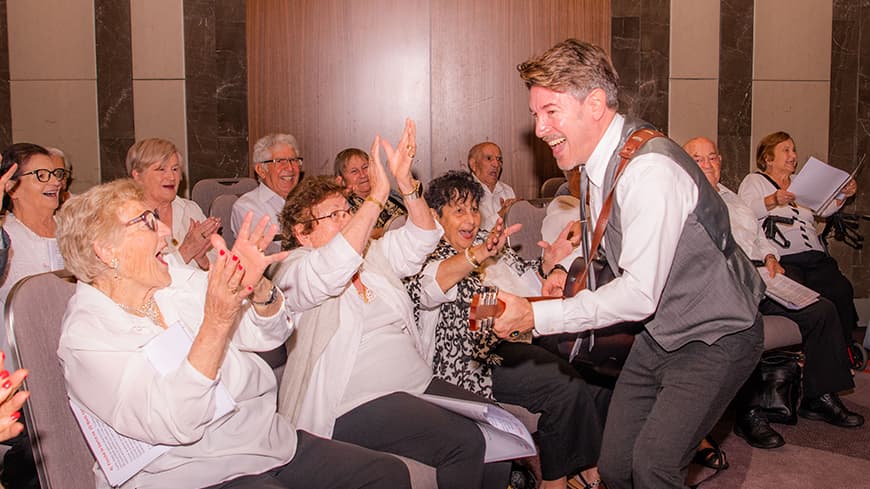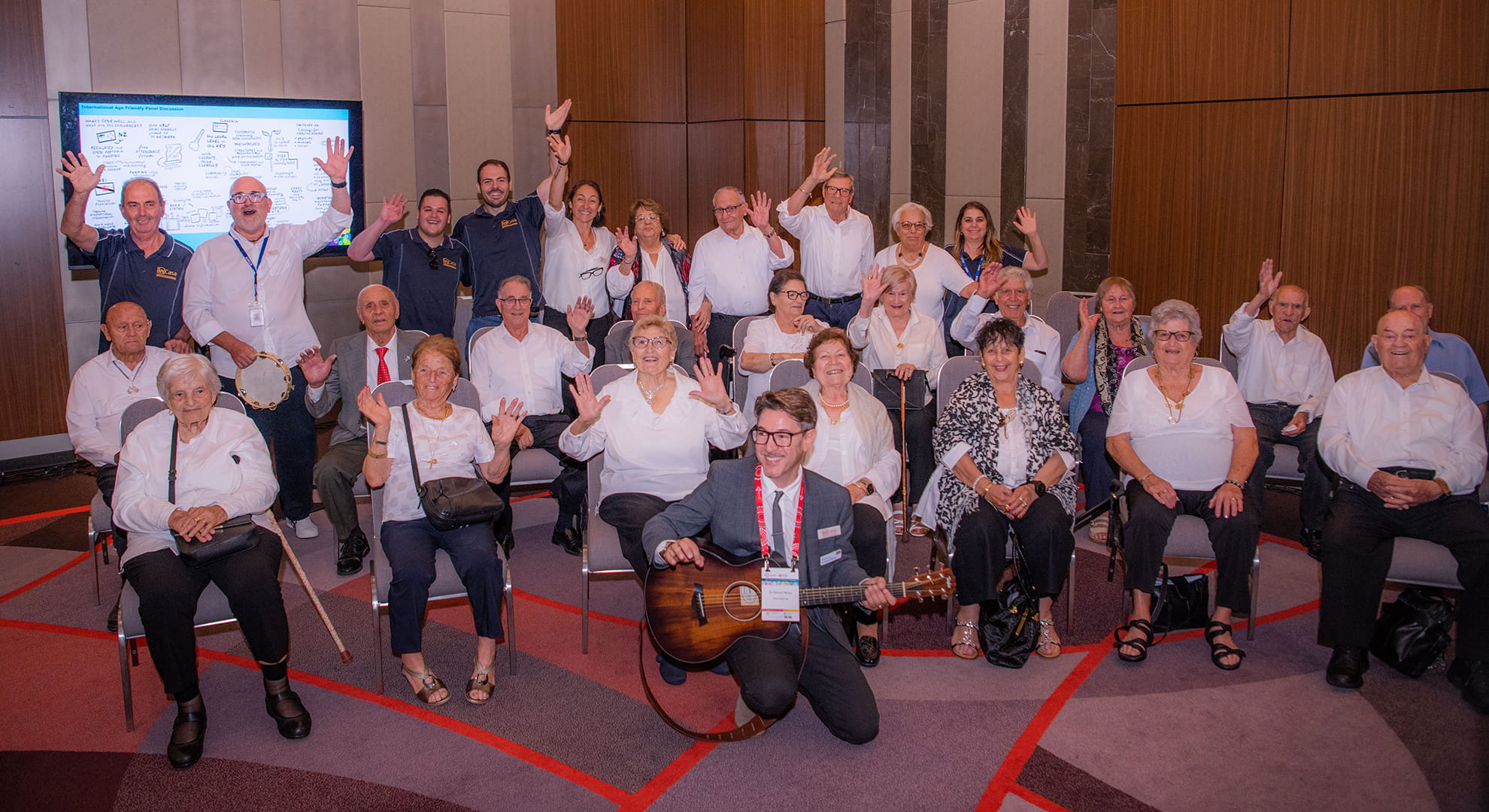An innovative Edith Cowan University (ECU) research project is using the power of music and storytelling to support the wellbeing of older Italian migrants, including those living with dementia.
The Comusichiamo project, led by Edith Cowan University (ECU) Post Doctoral Research Fellow Dr Simone Marino, engages participants and their families in co-creating songs inspired by melodies from their past, while also developing life-story booklets that integrate their first language and memories. The aim of these activities, combined with group choir sessions, is to maintain cognitive function, reinforce social identity, and enhance overall wellbeing.
Dr Marino said music has the power to unlock deep-seated memories, especially when it is culturally meaningful.
"For many Italian migrants, singing traditional songs or hearing familiar instruments evokes emotions and memories that reconnect them with their past and strengthen their sense of self."
 Members of the InCasa choir with Dr Simone Marino.
Members of the InCasa choir with Dr Simone Marino.
Enhancing wellbeing through music and storytelling
The Comusichiamo program, based at InCasa, an aged care home and community centre near Fremantle, involves 12 participants in individual sessions and about 30 people in group choir activities.
"Co-creating culturally tailored songs and life-story booklets in participant's first language improves mood, enhances physical and social engagement, and fosters better communication," Dr Marino said.
"And singing in the choir reinforces a sense of belonging, strengthening social bonds and encouraging emotional expression, and brings laughter and joy.
"This shared experience not only promotes cognitive stimulation but also restores a sense of agency, as participants actively shape their own cultural and emotional narratives.
 Members of the choir from InCasa Aged Care and Community Services.
Members of the choir from InCasa Aged Care and Community Services.
Music as a cultural anchor
Dr Marino's inspiration for Comusichiamo is both professional and personal.
"I witnessed my Italian grandfather, Nonno Nino, experience cognitive decline, yet he would light up when telling stories from the war," Dr Marino said.
"This, along with my own experiences as an immigrant and researcher among Italian migrants in Australia, led me to explore how cultural engagement can play a vital role in dementia care."
A fresh approach to dementia care
In 2021, an estimated 472,000 Australians were living with dementia, with the number projected to increase to more than a million people by 2058.
And as one in three people over 65 are born overseas, those with dementia include people from culturally and linguistically diverse (CaLD) backgrounds.
Dr Marino said initiatives like Comusichiamo can provide crucial insights into how aged care can be more inclusive and responsive to diverse cultural backgrounds.
"By focusing on cultural safety and identity, Comusichiamo offers a non-pharmacological approach to dementia care—one that prioritises connection, dignity, and quality of life," he said.
"Too often, aged care services overlook the cultural aspects of dementia care.
"This research highlights the important role of music and storytelling in maintaining connection and wellbeing, offering an approach that is not only therapeutic but deeply meaningful."
The project emerged from discussions with leading migration researcher, ECU Professor Loretta Baldassar in 2019 and was initially piloted in aged care facilities in Adelaide, before expanding to Western Australia in 2023. It's currently continuing and expanding, collaborating under the supervision of Professor Narelle Lemon at ECU's School of Education, the research is deepening its focus on wellbeing.
The paper 'Comusichiamo. First Language, Life-Soundtracks and Storytelling to Support the Cultural Wellbeing of Migrants Living with Dementia' is published in the Journal of Intercultural Studies.

 Members of the InCasa choir with Dr Simone Marino.
Members of the InCasa choir with Dr Simone Marino.



